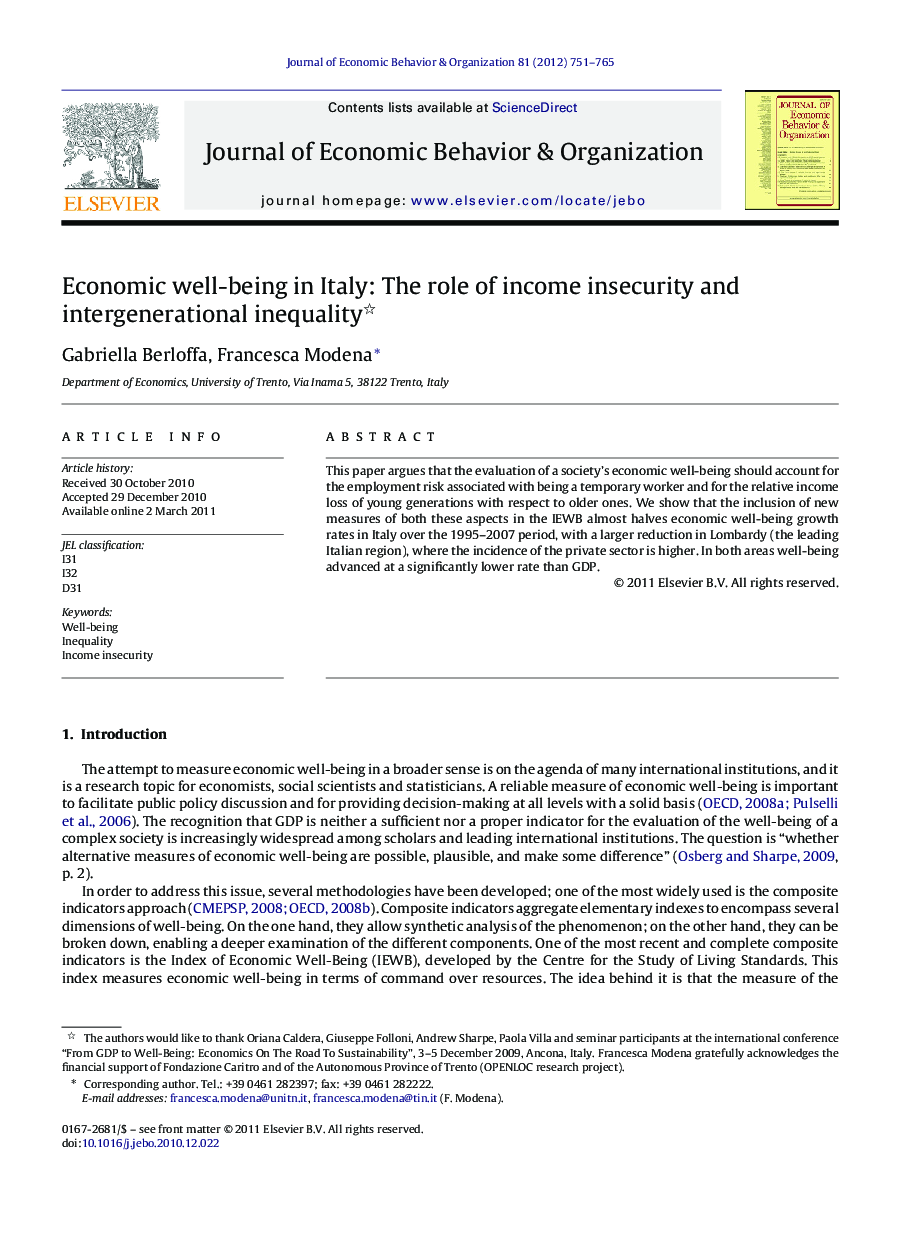| Article ID | Journal | Published Year | Pages | File Type |
|---|---|---|---|---|
| 883826 | Journal of Economic Behavior & Organization | 2012 | 15 Pages |
This paper argues that the evaluation of a society's economic well-being should account for the employment risk associated with being a temporary worker and for the relative income loss of young generations with respect to older ones. We show that the inclusion of new measures of both these aspects in the IEWB almost halves economic well-being growth rates in Italy over the 1995–2007 period, with a larger reduction in Lombardy (the leading Italian region), where the incidence of the private sector is higher. In both areas well-being advanced at a significantly lower rate than GDP.
Research highlights► Economic insecurity and intergenerational inequality affect economic well-being. ► We include new measures of these aspects in the IEWB for Italy. ► The inclusion of these measures almost halves the IEWB growth rate after 1995. ► This further reduces the meaning of GDP growth as a well-being indicator.
